What a Year of Writing Taught Me
Or How I learned to embrace the insanity, accidentally write a novel, and develop an unhealthy relationship with Google Drive
So apparently I'm a novelist now. Actually, that might be a stretch since I’m nowhere near to what I can call a civilised manuscript. But I have something. Words. 85,000 of them. Which is hilarious because a year ago I was the sort of person who would stare fondly at her collection of pretty and empty and pretty empty journals, walk away without adding a single pen scratch to them, and then focus on making grocery lists on her Notes app instead.
For brevity’s sake I won’t mention how writing said grocery lists involves getting waylaid by whether "aubergines" is spelled correctly, spending twenty minutes researching eggplant etymology, and forgetting to add coriander or milk or eggs entirely.
But here we are. One year and two months. I now have a manuscript, another published short story, three more short stories in various stages of existential crisis, and enough reworked drafts to wallpaper my house (which we also bought at the same time that I started this novel in a godforsaken corner of England, midway between my darling London and my husband’s Cambridge).
I’m not brand new to this world. It would have been much easier to hide my incompetence behind that excuse, if I were. There have been articles and short stories scattered here and there over the years. But a full-length novel was something I'd been planning to plan since university. University was 16 years ago.
For the first five years, my friends showed real enthusiasm. They gushed. For the last five, they’ve only smiled and nodded. The way one does when a relative mentions their collection of vintage thimbles.
But forcing myself to start an entirely new project and finish it within a year, has been equal parts terrifying and absurd. Like accidentally enrolling for a marathon when you meant to join a book club, then realising halfway through that you're actually rather adept at running, even if you did start in flip-flops.
The horse-shit of a first draft
Like everyone who attempts to write anything, I read Anne Lamott and went in fully aware of the shitty first draft.
So I wrote absolute horse-shit. Freely.
The first draft was everything and nothing. Bullet points. Highlighted sentences that were half-written. Fully written sentences that were nonsense. Unresearched half-truths. Cringey main character. Dialogue that sounded like corporate training videos. Overdone themes and tropes. Prose so purple it could have been mistaken for wine-tasting notes. Mild warnings and severe reminders to myself peppered throughout like breadcrumbs in a particularly neurotic fairy tale.
But the breakthrough was when I wrote atrociously on purpose, instead of by accident. Stumbling into moments of genuine truth, usually when I'd given up trying to be clever, and producing scenes and language that I may not have come up with consciously. That was enough to exorcise a large part of the fear that had kept me from attempting a novel for over a decade. The terror wasn't of writing badly; it was of acknowledging I was writing badly while doing it.
Was it accomplished? Humane? No.
Was it complete? Yes.
I hate first sentences
Well, no, I adore them. I adore them the way a therapist might adore their patient. Not so much for existing, but for existing to be dissected word by word, and secretly judged as they lie splayed from head to toe at my feet.
I opened any book with similar vibes to mine, plus books by authors I consider cool, and proceeded to read their first lines. This was invariably followed by the question: Will I, as a reader, continue to read this? Unsurprisingly, the answer was often a resounding "no."
I learned that first lines needn’t be profound. They either are or aren’t. Sometimes the profound ones aren't even iconic while the prosaic ones get quoted by everyone you know. First lines are, however, vibe-setters. Harbingers of where the story is going.
I knew what the vibe was when Raven Leilani says The first time we have sex, we are both fully clothed, at our desks during work hours, bathed in blue computer light. Or when Sarah Thankam Mathews says I would like to tell a story of a different time. Or when Arundhati Roy says She lived in the graveyard like a tree. And I wanted mine to set the vibe for mine.
But you will take perverse pleasure in knowing that I hate the first sentence of my novel and I have learnt that I will always hate it. I A/B tested it in writing groups on Reddit and Facebook. After settling on the one I’ve used for the last two drafts—and I’m aware it could change in future—I sought more beta readers. I report with marginal happiness that they have all loved it.
Does that make me love it now? Hardly.
Will I keep it? Yes. This is what we call growth, or Stockholm syndrome. I haven't decided which.
Chopping and hacking and layering and stitching
I did the thing. I stepped away after finishing the first draft. For five months. And I’m here to tell you that five months is approximately four months too long. This book could have been finished earlier if I hadn’t wasted my time painting our silly new home and getting a fucking promotion at work.
Editing for me was more stitching than anything. I wish I could say I was doing root canal surgery or a brain transplant, but I was more likely swatting blindly at a fly with a rubber mallet. My second draft was literally titled "Chop and Hack" on Google Docs (I have a screenshot). But the real revelation was discovering I'm a severe underwriter. I had a respectable 50,000 words that was more novella than novel. Riddled with gaps where story should have lived. I had borrowed from the future, assuming I'd figure it out later.
So I stared into the gaping maw of these narrative gaps till I was able to populate them with shoddy literature that amounted to 95,000 words, resolving to tackle the shoddiness in subsequent drafts. The manuscript was recognisably mine—my voice, my metaphors, my peculiar tendency (as pointed out by betas) to write interminable banter—but it wasn't yet the book I'd intended to write. All skeletal framework and synapses, no flesh or vitality.
The lesson: working in layers. Like cooking curry. Commencing with the foundation of an idea or fragment of dialogue or scene. Adding exposition, escalated stakes, wittier banter, before leading the reader toward deafening climax. Paring all of it back and adding more. One stratum after another, cultivating flavour and profundity.
Long live the reverse outline
As you can probably tell by now, editing was a bloodier event than writing Draft 1. But the best lesson out of that was leaning on a reverse outline.
Surprisingly, there aren't abundant resources on reverse outlining, but it saved both my life and my novel’s. I condensed the scenes and events I had already written into one-line summaries and created the outline by playing around with those summaries till I had a structure that looked half decent to me. Having that structural beacon in the background made the process manageable.
Will I use plot outlines going forward? Probably not. I know how I work, what makes my process flow, and I'd likely ignore an outline entirely (which defeats its purpose).
But reverse outlining? Categorically. It's a method to domesticate a chaotic draft by an unhinged person and render it worthy of presentation.
The diasporic catastrophe
This was my surprise obstacle. I'd presumed my experience writing South Asian characters as a British-Indian would be straightforward. I have obviously done it before. I was wrong.
I knew the rules—use some desi words here and there, throw them around sparsely so the piece feels culturally grounded, but provide enough context so Western readers don;t feel the need to fire up Google Translate.
The niggling questions that set my teeth on edge: Do I explain the entire cultural setting behind a temple visit for this scene to ring true for people who don’t visit temples? Will people understand what "Acha" and "Achachan" mean? How can this intimate scene work if readers don't know what a mumu is? Will generational trauma in a brown family be relatable? Who is going to read this?
Who. Is. Going. To. Read. This.
That last question lodged itself in my gullet like a fish bone. The answer materialised through beta readers. Ravenous souls hungry to read and fearless with their feedback. Like hosting a dinner party where everyone's invited to critique your cooking while you're standing right there, sweating nervously and wondering if you've over-salted the tandoori chicken.
It's a particular form of intimacy that involves handing over something you've lived with for months and saying, "Please tell me all the ways this doesn't work, but also please don't hurt my feelings too badly because I'm fragile and also haven't had enough sleep."
I am quietly grateful that they can’t see me huddled in the corner, rocking back and forth trying not to cry over their comments. I had a beta say “do you know any other words that you can use here?”. That was…fun.
But beta readers proved the most potent method of improving the story, finding faults that had fallen through the darkness of my blind spots. Less guesswork, more assured direction. Candid, seasoned betas are rare to find, but I have been lucky.
The isolation and the people who exist in it
It is not rare knowledge that writing is inherently a lonely act.
I knew this, but I hadn’t given the feeling much real estate in my mind. Since I started writing in my pre-adolescence, I had written everything in isolation. My mother cut out my pieces from newspapers and children’s supplements and put them in a scrapbook that she still refuses to give to me.
“What if you lose it?” she mumbles.
Her doubts are not far-fetched.
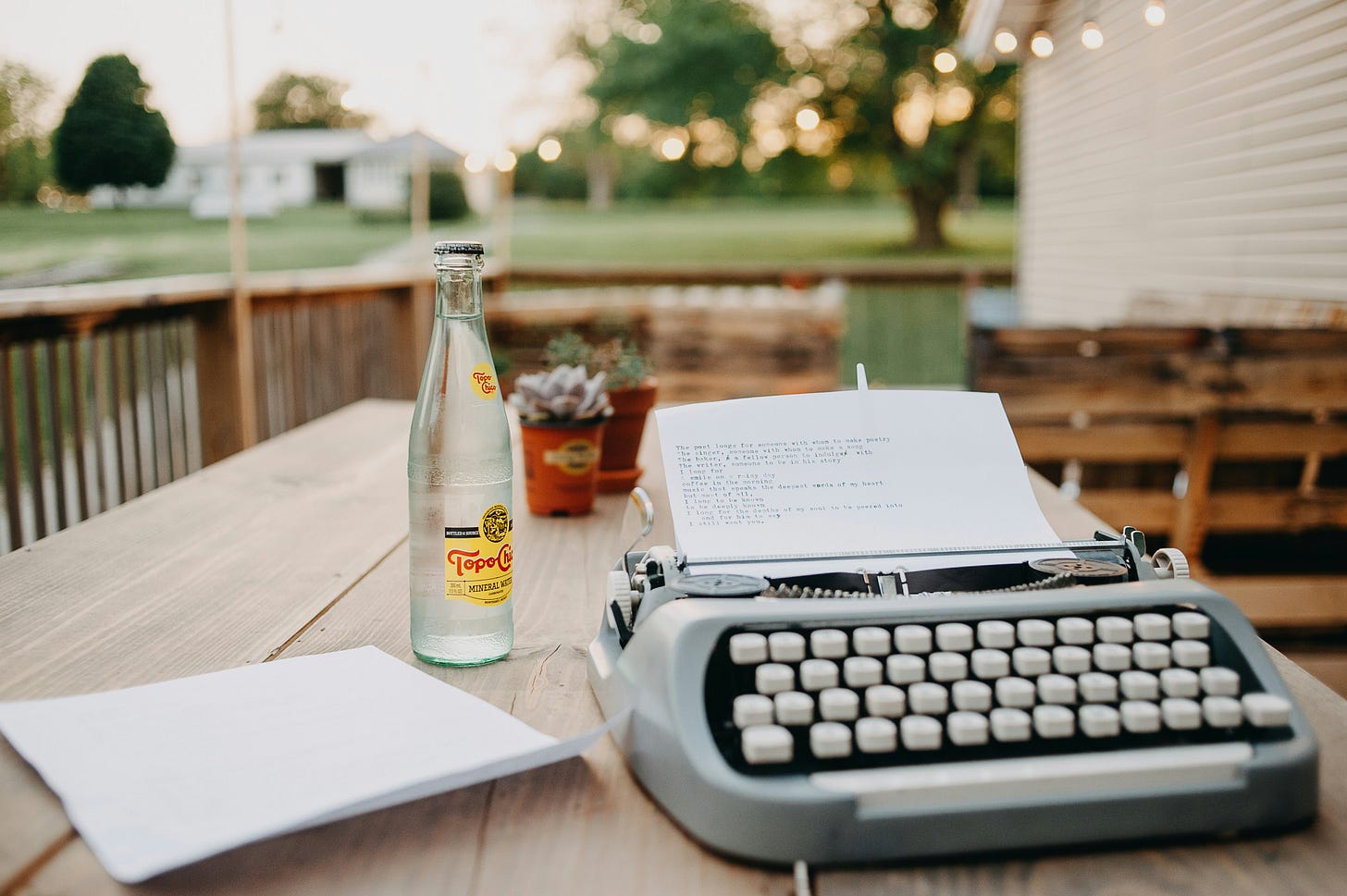
My husband supports my writing despite never reading anything I've written. —while I painted the house.
My husband is incredibly supportive of my writing despite never having read anything I’ve written. He built my entire writing station—new tech, thrifted chair, reclaimed wood desk, Tiffany lamp left by previous owners. But the act of writing itself, of digging beneath sofa cushions and lifting rocks to find words, remains mine alone.
That's why discovering how this project connected me to others was such a pleasant experience. On Bluesky, on X, on Discord and Facebook and Reddit and TikTok. Countless questions about starting projects, outlining, writing villains, POV, routines. Social media, one platform vastly different than the other, used judiciously, revealed that while I may be flailing without design in an industry few understand, I'm not actually alone.
I’m isolated, but not really, because there are people here. There's profound solace in discovering others who lie awake fretting whether their protagonist's motivations are clear in chapter three, who know the joy of finding exactly the right word after twenty minutes of thesaurus-wrestling. My words are produced in isolation, but there's someone in the adjacent cubicle grappling with the same words.
And that's not lonely at all. It's the revelation that the work may be private but the struggle is chaotically communal.
Follow along with my eating, cooking and writing adventures here, where I promise to document both the triumphs and the failures.


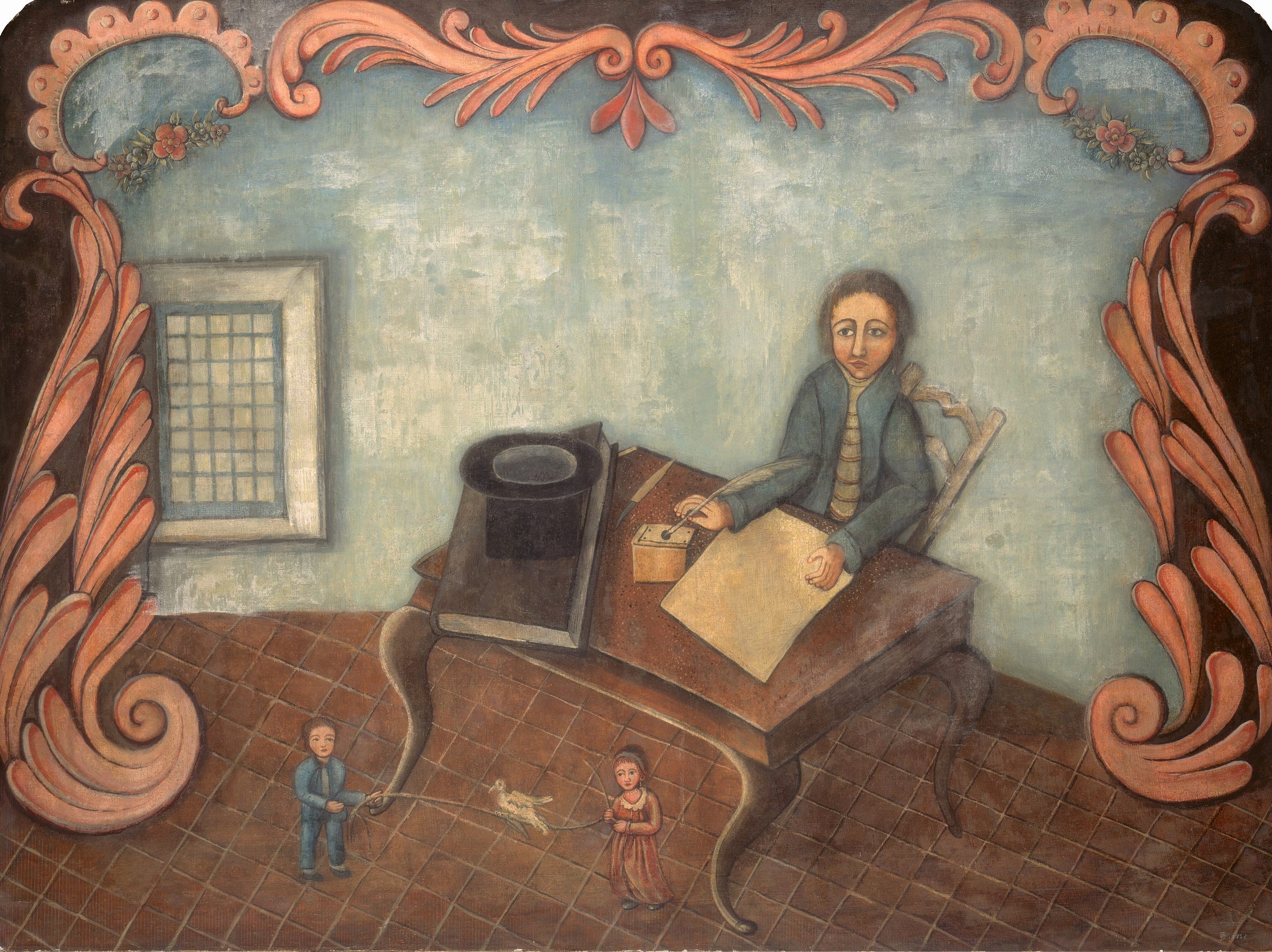
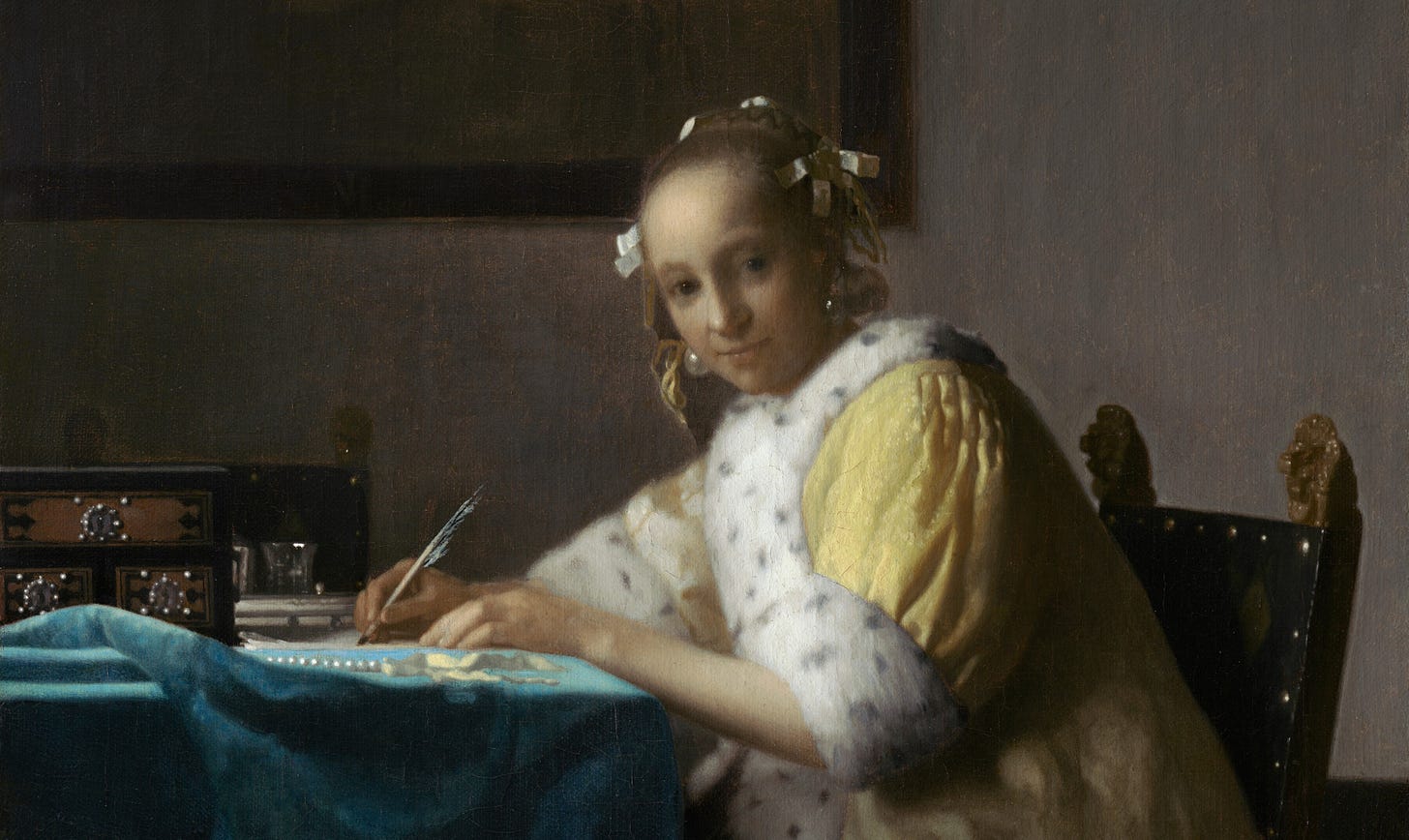
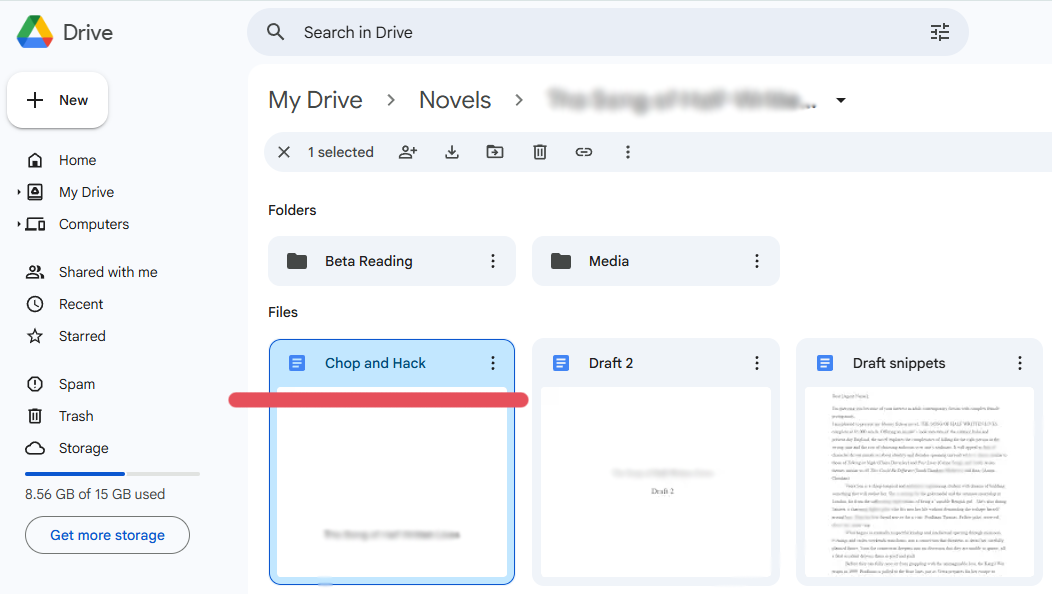
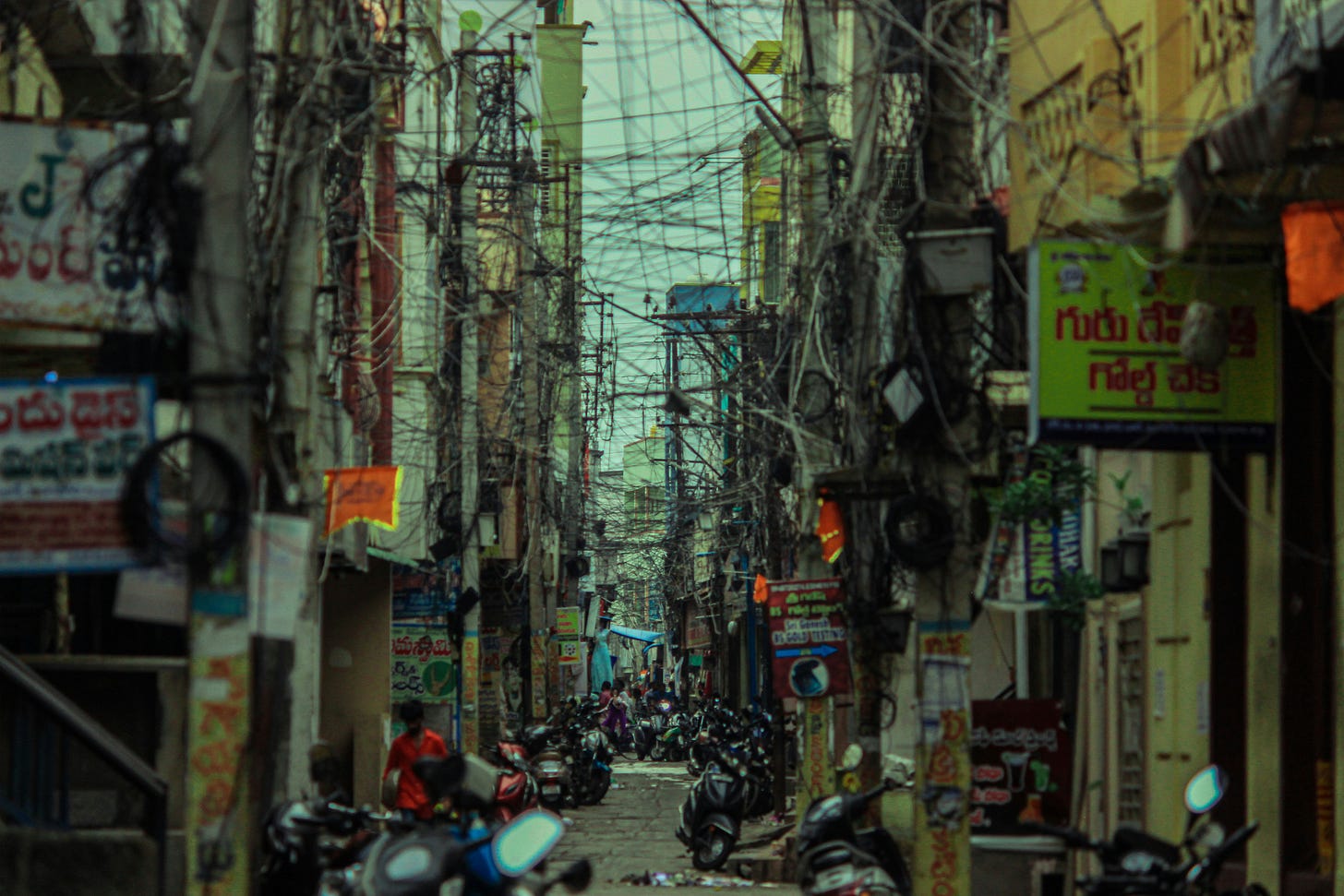
loved reading this